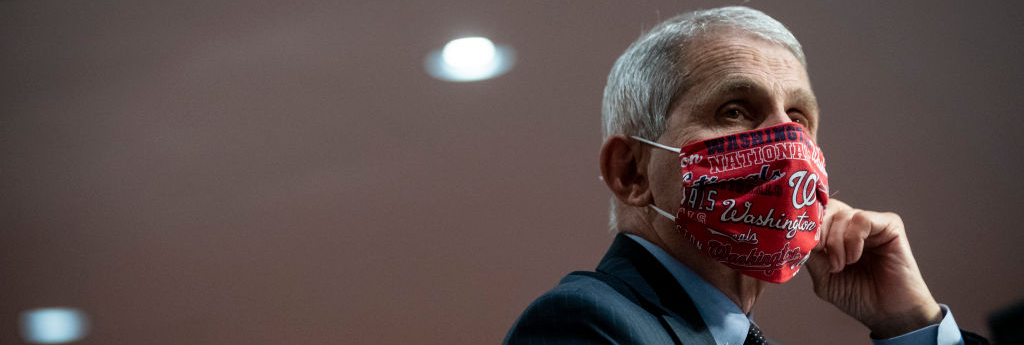Dr. Anthony Fauci, the director of the National Institute of Allergy and Infectious Diseases, emerged as an early source of information as the COVID-19 pandemic spread across America. He stood beside President Donald Trump at coronavirus task force briefings and provided blunt public warnings to Congress about the consequences of allowing coronavirus to spread.
In March, President Trump insisted that his relationship with Fauci was “very good” and called Fauci “extraordinary.” Even as Fauci shared increasingly dire predictions about the coronavirus’ rapid spread, the nation trusted his medical warnings. Trended data from The Economist/YouGov Poll indicates that as Trump presented a united front with Fauci in March, there was bipartisan faith in Fauci’s advice. Majorities of the general population (56%), Republicans (56%), and Democrats (64%) trusted him.
But, a new report from The Washington Post indicates that after months of right-wing attacks against Fauci, the Trump administration has sidelined him in the battle against COVID-19. The 79-year-old disease expert reportedly no longer meets with Trump administration officials in the Oval Office, and President Trump himself has said he now disagrees with Fauci’s data-based assessments of how COVID-19 is impacting America.
Recent data from The Economist/YouGov Poll indicates that about half of America (51%) still trusts Fauci’s medical advice, and Americans are more than twice as likely to trust Fauci than distrust him (21%).
From March to July, the level of trust in Fauci's medical advice has dropped 18 points among Republicans (56% to 38%). It has dropped five points among the general public (56% to 51%), four points among Independents (49% to 45%), and increased four points among Democrats (64% to 68%).
Despite the decreased trust in Fauci among Republicans, Americans overall continue to trust medical experts over politicians. About three in five Americans (63%) trust medical advice from the Centers for Disease Control and Prevention, a number that has dropped slightly (71%) since The Economist/YouGov Poll evaluated medical trust in the agency in early April.
Overall medical trust in CDC (63%) and Fauci (51%) is still much higher than that placed in President Trump (33%) and Democratic presidential candidate Joe Biden (34%). The general public is more likely to distrust President Trump’s medical advice (52%) than trust it. While medical distrust for Biden is lower (45%) than it is for Trump, Americans are still more likely to distrust Biden's medical advice than trust it.
In both instances, trust in the presidential candidates is bolstered by their own party members and dragged down by their opposition party. About three-quarters of Republicans (73%) trust Trump’s medical advice, and just 6 percent of Democrats do. In contrast, about seven in 10 Democrats (68%) trust Biden’s medical advice, and just 8 percent of Republicans do.
See the toplines and crosstabs from this week’s Economist/YouGov Poll
Methodology: The most recent Economist survey was conducted by YouGov using a nationally representative sample of 1,500 U.S. adult citizens interviewed online between July 5 - 7, 2020. The approximate margin of error is 3.2 percentage points for the overall sample. Samples are weighted according to gender, age, race, and education based on the American Community Survey, conducted by the US Bureau of the Census, as well as 2016 Presidential vote, registration status, geographic region, and news interest. Respondents were selected from YouGov’s opt-in panel to be representative of all US citizens.
Image: Getty










